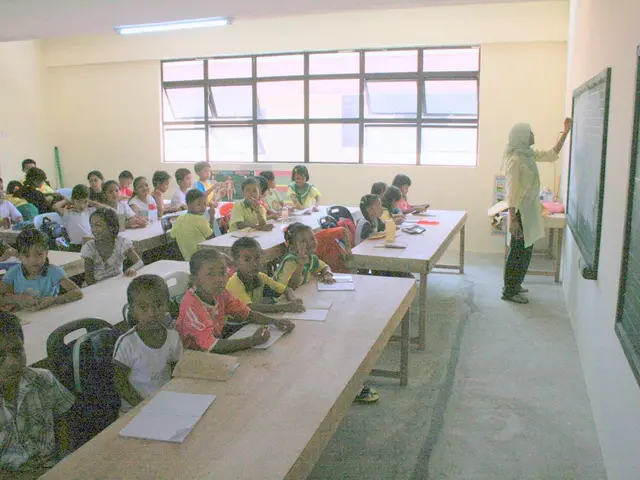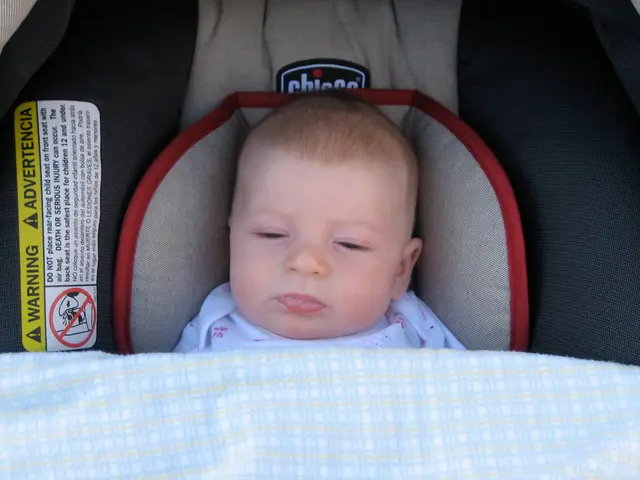Guiding Kids through Stressful Situations and Difficult Moments
Impact of Trauma on Childhood and Adolescence: Strategies for Coping and Recovery
Children and teens often struggle to cope with the aftermath of serious accidents, violent crimes, disasters, or other troubling events. Such experiences can trigger traumatic stress, impacting their sense of security and leaving them feeling helpless and vulnerable, especially if the event was violent in nature. Even children not directly affected by the crisis can experience trauma as a result of constant exposure to disturbing images on media.
Regardless of the specific nature of the trauma, children are likely to experience a range of intense, confusing, and terrifying emotions. While these symptoms may gradually subside, there are several strategies parents and guardians can employ to support and comfort a traumatized child.
Recognizing Symptoms of Traumatic Stress in Children and Adolescents
Signs of Trauma in Kids and Teens
Traumatic stress is a common response to a disaster, conflict, or other distressing event. It can affect children of all ages, triggering a wide variety of emotions and physical responses that can affect their overall well-being.
| Symptoms of Trauma in Children and Teens || --- || Infants under age 2 may exhibiting changes in sleep or eating patterns, increased fussiness, or signs of withdrawal. || Children aged 2 to 5 may display fear, increased clinginess towards parents, crying, freezing, or regressive behaviors such as thumb sucking or bedwetting. || Children aged 6 to 11 may lose interest in friends, family, or activities, suffer from nightmares or sleep problems, become moody or aggressive, struggle with schoolwork, complain of physical symptoms, develop unfounded fears, or feel depressed, numb, or guilty. || Adolescents aged 12 to 17 may experience flashbacks, nightmares, avoidance of reminders, substance abuse, disruptive or aggressive behavior, physical ailments, feelings of isolation, guilt, depression, or loss of interest in hobbies. In extreme cases, they may have suicidal thoughts. |
It is crucial to offer additional support and encouragement to a child following a traumatic event. With love and guidance, the unsettling thoughts and feelings of traumatic stress can gradually fade, enabling the child to return to a normal routine in the days or weeks following the crisis or disturbing event.
Infants under age 2 may:
Helping Children Cope with Disasters and Traumatic Events
Children often absorb their parents' reactions to a traumatic event, so it is important for parents to take steps to manage their own traumatic stress. Even very young infants can pick up on their parents' anxieties and stress.
- Fuss more or be harder to soothe.
- Exhibit changes in sleep or eating patterns.
- Appear withdrawn.
By taking care of your own emotional health and well-being, you will become a calming influence and be better equipped to help your child. As children mimic adult behavior, if they observe their parents taking steps to cope with trauma, they are likely to follow.
Additional tips for helping your child cope include:
Children age 2 to 5 may:
- Remembering that children react to trauma differently and their feelings may come and go in waves.
- Encouraging your child to express their feelings openly.
- Allowing them time to grieve any losses they may have experienced.
- Discouraging them from continuously dwelling on the traumatic event.
- Engaging in family relaxation activities.
Tips for Recovery and Coping
- Show signs of fear.
- Cling to parent or caregiver more.
- Cry, scream, or whine.
- Move aimlessly or freeze up.
- Regress to earlier childhood behaviors, such as thumb sucking or bedwetting.
- Rebuild trust and safety: Trauma can alter a child's perception of the world, making it seem more dangerous and unpredictable. To help rebuild their sense of security, focus on making your child feel safe again, encourage them to participate in enjoyable activities, maintain routines, speak optimistically about the future, and keep your promises.
- Minimize media exposure: Excessive media coverage can be further traumatizing to children who have already experienced trauma. Limit your child's exposure to news and social media, and avoid exposing them to graphic images and videos.
- Engage your child: Spend quality time with your child, talk to them about their feelings, and create an environment where they feel safe to communicate and ask questions. Acknowledge and validate their concerns, and reassure them.
- Encourage physical activity: Regular exercise can help burn off adrenaline, release endorphins, and improve sleep. Find a sport your child enjoys and schedule family outings to encourage exercise.
- Focus on nutrition: A healthy diet can significantly impact a child's ability to cope with stress. Limit processed and convenience food, refined carbohydrates, and sugary snacks, and encourage more fruits, vegetables, lean proteins, and healthy fats.
Managing Behavior Problems
Children age 6 to 11 may:
Misbehavior in children following a traumatic event is often a reaction to the stress they are under and a way to vent frustration. When acting as a disciplinarian, remain calm, manage your own stress levels, redirect your child to other activities, reward good behavior, and avoid yelling or spanking.
When to Seek Professional Help
- Lose interest in friends, family, or activities they used to enjoy.
- Experience nightmares or other sleep problems.
- Become moody, disruptive, or angry.
- Struggle with school and homework.
- Complain of physical problems such as headaches or stomachaches.
- Develop unfounded fears.
- Feel depressed, emotionally numb, or guilty over what happened.
In some cases, symptoms of traumatic stress may not resolve on their own, or they may interfere with a child's ability to function at school or home. If your child's symptoms persist or worsen, they may require help from a mental health professional.
Trauma-Focused Cognitive Behavioral Therapy (TF-CBT), trauma-informed therapy, building resilience, relaxation and stress management, somatic practices, healthy lifestyle practices, social support, self-compassion practices, journaling, and engaging in positive activities can all help children effectively cope with traumatic stress over the long term.
Adolescents age 12 to 17 may:
If you suspect your child may be experiencing suicidal thoughts, take any suicidal talk or behavior seriously. It is a call for help. In the United States, call the National Suicide Prevention Lifeline at 1-800-273-TALK (8255). In other countries, visit IASP to find a helpline near you.
- Have flashbacks to the event, suffer from nightmares or other sleep problems.
- Avoid reminders of the event.
- Abuse alcohol, drugs, or nicotine products.
- Act disruptive, disrespectful, or aggressive.
- Complain of physical ailments.
- Feel isolated, guilty, or depressed.
- Lose interest in hobbies and interests.
- Have suicidal thoughts.
Children experiencing trauma might exhibit emotional changes that affect their overall health and wellness, such as fear, increased clinginess towards parents, or regressive behaviors like thumb sucking or bedwetting. In recognizing symptoms of traumatic stress, parents and guardians can employ strategies that support and comfort the child, fostering a healthy family environment that encourages mental health and resilience. For instance, rebuilding trust and safety, minimizing media exposure, engaging the child, encouraging physical activity, focusing on nutrition, managing behavior problems, and seeking professional help when necessary are all vital components in assisting children cope with traumatic experiences.








